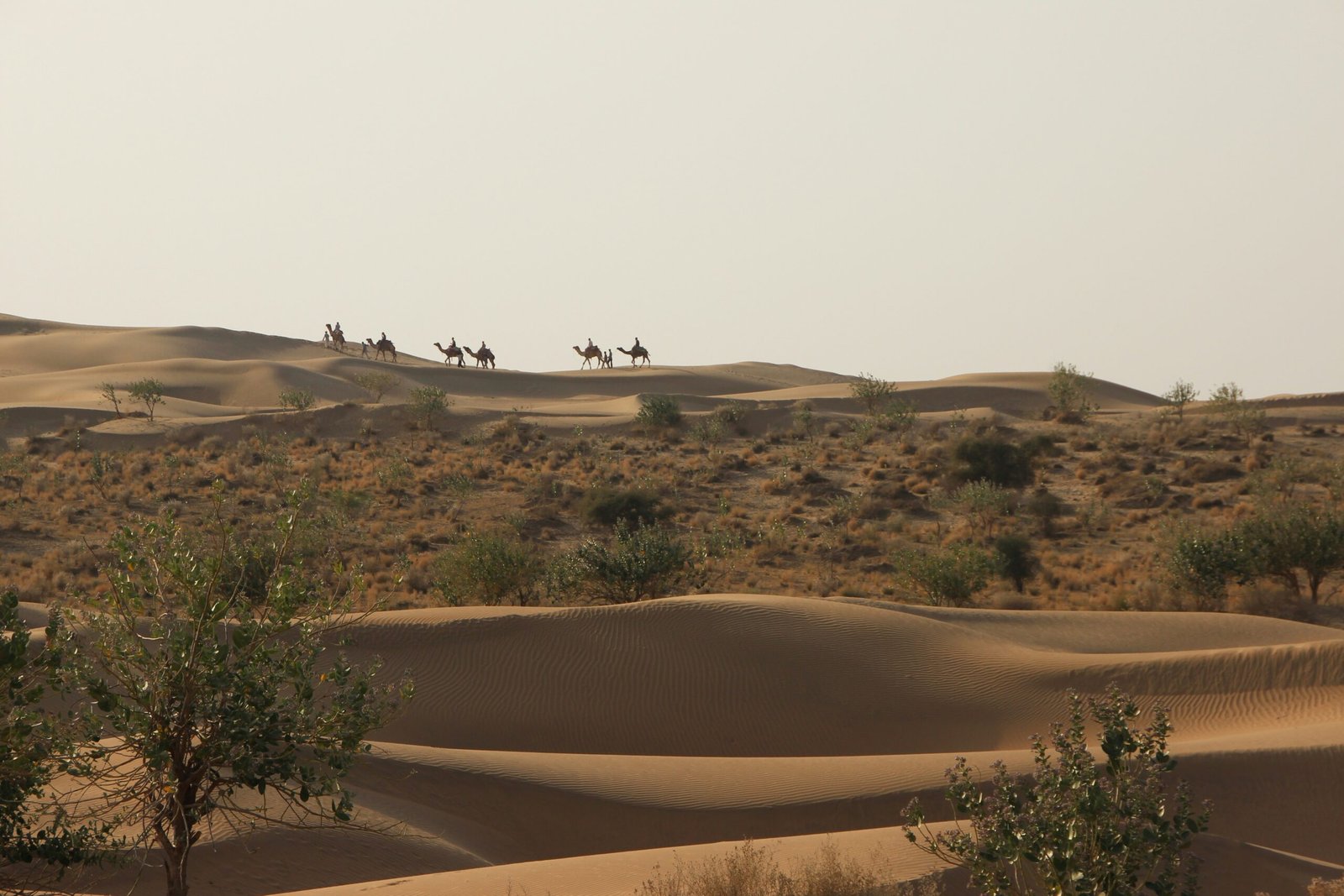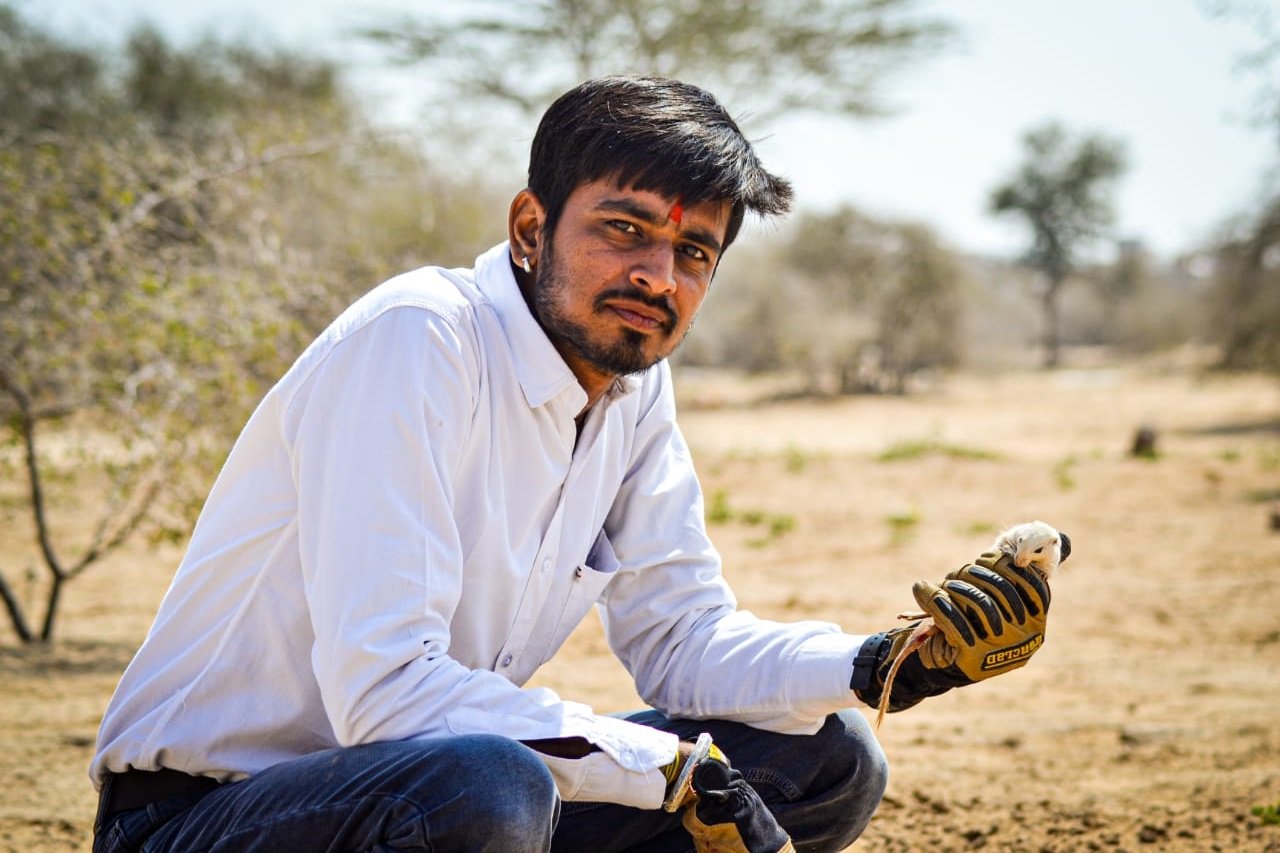

Dr. Chetan Misher
( Founder | Ecologist )
Dr. Chetan Misher is an ecologist specializing in grassland ecology, invasive species management, and biodiversity conservation. His Ph.D. research at ATREE and Manipal Academy of Higher Education focused on how invasive plant and animal species influence native wildlife and ecosystem dynamics in the Thar Desert. Through a combination of camera trapping, ecological experiments, and remote sensing, he studied changes in wildlife distribution and behavior in response to habitat modifications.
Over the years, Dr. Misher has worked on various research and conservation projects, particularly in dryland ecosystems. He has been involved in restoration activities and research, studying the potential of carbon sequestration in grasslands, assessing wildlife responses to habitat restoration, and contributing to the conservation of open natural ecosystems. His work has also informed grassland conservation policies in Maharashtra and Rajasthan.
Beyond research, he has experience in wildlife monitoring, landscape ecology, and ecological data analysis. He has published his findings in scientific journals, policy briefs, and environmental reports, and actively engages in science communication and public outreach to promote awareness about the ecological importance of India’s dryland landscapes.
Key Areas of Work:
- Grassland and savanna ecosystem research and restoration
- Invasive species impacts on native biodiversity
- Wildlife monitoring and conservation planning
- Carbon sequestration in dryland ecosystems
- Policy research and advocacy for grassland conservation

Dr. Karni Singh Bithoo
( Founder | Environmental Researcher )
Dr. Karni Singh Bithoo is an environmental researcher with expertise in biodiversity conservation, habitat restoration, and water resource management. He completed his Ph.D. at Maharaja Ganga Singh University, Bikaner, where he studied how community-managed lands, particularly common property resources, contribute to biodiversity conservation in Rajasthan’s arid landscapes.

His research has focused on avian and plant diversity, habitat degradation, and water resource sustainability in dryland regions. He has studied the effects of heavy metal contamination in groundwater, highlighting challenges related to water quality and sustainable management in desert ecosystems.
Dr. Singh has worked on several habitat restoration initiatives, including efforts to revitalize native grasslands and restore traditional water harvesting systems in Rajasthan. He has collaborated with local communities to promote sustainable land-use practices and conservation strategies that balance ecological needs with rural livelihoods.
In addition to scientific research, he has contributed to conservation reports, outreach programs, and policy discussions, aiming to bridge the gap between research and on-ground conservation efforts.
Key Areas of Work:
- Biodiversity conservation in arid and semi-arid ecosystems
- Role of community-managed landscapes in ecological health
- Water quality monitoring and sustainable management
- Habitat restoration and conservation planning
- Ecological research and community-based conservation

Shubham Kalwani
( Environmental Researcher )
Shubham Kalwani is an environmental researcher with expertise in wildlife monitoring, ecological data analysis, and habitat restoration. He holds a Master’s degree in Environmental Science from Maharaja Ganga Singh University, Bikaner, and a Postgraduate Diploma in Geo-information and Remote Sensing.
His research focuses on biodiversity conservation, landscape ecology, and wildlife-human interactions, with an emphasis on dryland and grassland ecosystems. As a Junior Research Fellow on the Sloth Bear Conservation Program in Gujarat, he contributed to studies on habitat evaluation, corridor connectivity, and community engagement.
Shubham has hands-on experience in camera trapping, avian ecology, and ecological surveys, working extensively in dry grassland and desert ecosystems. His skills in GIS and remote sensing aid in mapping and analyzing ecological trends. He is particularly interested in using geospatial technology for conservation planning.
Key Areas of Work:
- Wildlife monitoring and biodiversity conservation
- GIS and remote sensing for ecological research
- Habitat restoration and land-use planning
- Human-wildlife interactions and conservation strategies
- Data analysis for ecological research
About DEEP Foundation
Dedicated to Conserving India’s Dryland Ecosystems
The Dryland Ecosystem, Environment, and People (DEEP) Foundation is committed to the conservation and restoration of India’s dryland ecosystems, with a focus on grasslands, savannas, and desert landscapes. Founded by Dr. Chetan Misher and Dr. Karni Singh Bithoo, DEEP integrates scientific research, ecological restoration, and community engagement to promote sustainable land management and biodiversity conservation.
Why Drylands Matter
Drylands cover a significant portion of India, yet they remain underappreciated and undervalued in conservation efforts. Often mistaken as wastelands, these ecosystems support diverse wildlife, provide critical carbon sinks, and sustain millions of pastoral communities. We at DEEP works to change this narrative, highlighting their ecological importance and ensuring their protection for future generations.
Our Mission
To contribute in restore, protect, and promote the ecological and cultural significance of dryland landscapes through research, conservation action, and community partnerships.
